Daley Downing's Blog, page 24
August 1, 2018
The Humor of Yesteryear
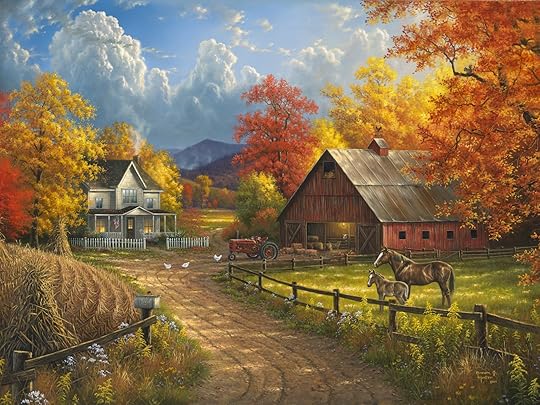
I am concerned. Concerned for the traditions of humor in America. While I would normally refer to myself as embracing progress in many areas — medicine, education, transportation, infrastructure, architecture — humor, especially humor in art, is something that I feel is decidedly worth remaining “old-fashioned” about.
I’ll probably sound much older than I actually am by saying this (hint: I was a child of the 1980s, so I am nowhere near ready for the nursing home), but I honestly squirm at a significant portion of what’s considered “funny” in the 21st century. The focus on sexual references (not so subtle ones at that), making light of someone else’s misfortune (again, not very politely), and ripping to shreds others’ religious and political views (definitely not subtly or with an ounce of tact) really doesn’t strike me as laughable fodder.
I grow nostalgic for the days of satire, light-hearted parody, and when everybody got sarcasm without needing it explained. I hold sentiment for the days when I actually recognized the comedians on TV. I long for Dave Barry inventing crazy names for rock bands, Erma Bombeck giving us new ways to insult telemarketers, and people automatically breaking into the refrain, “Hello, Muddah, hello, Faddah,” when the words “summer camp” are mentioned.

I miss switching on Saturday night “entertainment” and finding the guy who always fell off his piano bench. I miss old British comedies (honestly, I don’t even know what’s on BBC and Channel 4 anymore).
I miss reading a book and feeling like it really was funny. Don’t get me wrong, there are books published in the last five years that have had me rolling on the floor. Absolutely. (Thank God.)
But there are also many more that leave me scratching my head. Same goes for a lot of movies and TV shows. Am I really a “stick in the mud”? Am I simply “falling behind the times”? (Do people even use that phrase anymore? Great, did I just set this argument in stone?!)

Or, am I merely among a growing group of people under 50 (in some cases, under 30) who are aware of a declining sense of decency in society? And rightly bothered by it?
I don’t find “reality” TV at all entertaining. I don’t get a bunch of the memes or hashtags floating around, because I’ve never seen the show, watched the viral video, or checked out the podcast. When my options are to waste an hour of my life watching some fame-chasing clod make a fool of themselves, or to indulge in a repeat of Masterpiece Theater, guess which I choose?
One of the few new programs I do like is an Australian/New Zealand production called 800 Words. It’s a realistic, genuinely humorous, serious when it needs to be, and poignant at the right moments not-quite-drama/not-outright-comedy about a widower who moves his teenage children to the middle of nowhere. It’s very modern (they have wi-fi and up-to-date slang and culture), but it’s sweet, and not fraught with political agendas, nor too heavy-handed on the less-fun things.

Apparently we now need to turn to the literal far-flung corners of the globe for decent, acceptable, enjoyable programming. Honestly, I don’t think I have a problem with that.
Well, I kind of do — because I worry about what’s becoming of my native land. And about how much space will be left in Britain and Australia for my children, when they grow frustrated and decide to emigrate.
Like I did. And maybe I will again.
In the meantime, I’ll pray for a lot of what’s currently trending to quickly become a footnote to history.

July 30, 2018
Are the Standards for Classics Changing?
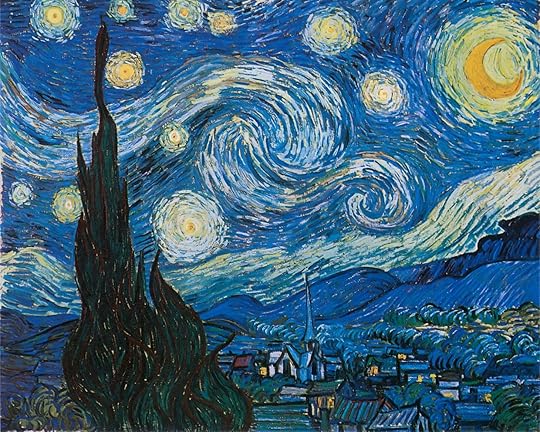
What makes a classic, a classic? What determines that a novel should be lauded as an outstanding piece of literature, and handed down for generations upon generations to enjoy and gain insight from? Do these criteria vary, depending on the culture, the time period, the literary expectations of the day? Can the status of “classic” actually change, to “outdated” or even “no longer important”?
Is it ever acceptable for this to happen to a book that was beloved for decades, perhaps centuries?
So, addressing the first point: How does a classic get to be that way? Usually, it’s when a book have been revered by at least a couple of consecutive generations, and often include big social or cultural themes in their story — such as racism, feminism, coming of age, war, surviving the passing of a close family member, teaching a valued religious or moral lesson.
And, yes, these qualifications do alter depending on the era, the government, the traditions and viewpoints of that particular century and nation. (And just for the record, I’m not justifying or defending any of that, I’m simply stating the fact.)
So, here we come to the heart of the matter in this particular post: Can a long-standing classic become un-classic-ified? (That is completely a word. Amen.)
And, should it?
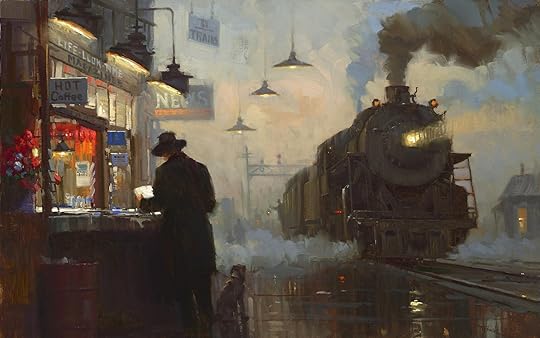
There are some classics that have become outdated, as of the early 21st century — for example, I’m thinking Pride and Prejudice (because, seriously, do arranged marriages occur anywhere civilized anymore?), The Great Gatsby (the Roaring 20s and Prohibition is not something people can relate to these days), and Catcher in the Rye (since the concept of a book becoming an instant bestseller purely for being controversial is no longer shocking). Now, before anybody starts throwing copies of said titles at me, I’m not saying fans of these books can’t continue to be fans of these books. I’m only suggesting that whether we keep them on the high school/college curriculum should be re-evaluated.
Should novels such as Frankenstein and Moby Dick still be used to teach the epitome of bad decision making? Is Huckleberry Finn still necessary to start a conversation on racism? Haven’t we all had enough drama from Jane Eyre and Great Expectations?
Since the way we approach certain topics in school and book clubs nowadays has changed distinctly from how it was done even 30 years ago, I really think our reading choices should reflect that. I seriously vote in favor of putting titles like The Book Thief, The Joy Luck Club, The Road, and The Hunger Games into the rotation.
Too many current teenagers complain that they don’t understand books written 150 years ago — literally, don’t comprehend the language, the customs, the importance of characters’ motivations or concerns. Lots of middle-aged adults complain that being forced to read such drudgery in school nearly turned them off reading altogether.
That’s just sad.

And what about the constantly expanding perimeters on genres and what “counts” as a high standard for each? Why can’t all the genres get equal time and appreciation?
Recently I heard someone say that Lord of the Rings was not high quality literature. Are you kidding me?!?! My personal preferences aside, Tolkien WAS a professor of English and Classics, and he wrote his magnum opus in what IS a classic literary fiction style, and just because it’s fantasy should NOT mean it’s perceived as “less”.
The same goes for mysteries (Sherlock Holmes is one of the most beloved characters in English Lit, why are none of his tales on the required reading list?), updated sci-fi (HG Wells and Jules Verne need to take a backseat while Philip K. Dick and Isaac Asimov get more of the spotlight), and children’s books elementary students of 2018 actually relate to (like Harry Potter and Percy Jackson).
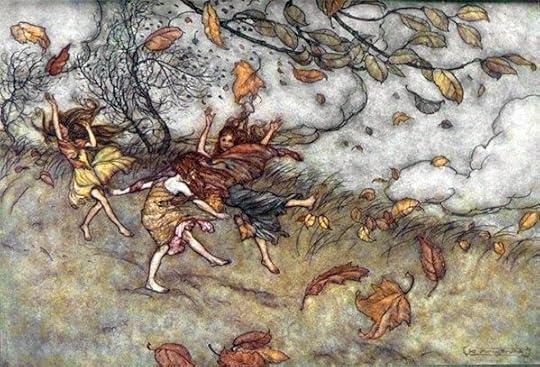
And then there’s the whole “diversity fiction” platform, that needs a fair bit of revamping. Books that used to be seen as only fitting into a niche (like urban or “street” lit) really should become about reaching people who aren’t in that culture. Contemporary or dystopia titles by authors such as Marie Lu, Sandhya Menon, and Jenny Han really deserve more publicity — not as hip new dystopias or cute fluffy romances, but as next-generation diversity.
Recently, White Fang and I watched the film of The Breadwinner, based on the novel of the same name, which is about life for females under Taliban rule in Afghanistan. It’s a perfect diversity pick. But it’s not being hyped anywhere. We happened across a preview for it — and it was the first I’d heard of this truly amazing story.
(What’s up with that?)

In 25 years, what books will we consider classics?
Selections like Little House on the Prairie and The Adventures of Tom Sawyer, which are now frequently decried as terribly dull and un-connect-able (still a word, hush), are already fading in popularity. (What will they be replaced with, I wonder?)
Novels that have been insanely popular in the past decade or so (The Da Vinci Code, Life of Pi, The Handmaid’s Tale, The Curious Incident of the Dog in the Night-Time) are well poised to leap to the heights of recommended reading everywhere. Each of these isn’t without its controversy, and that appears to be one of the hallmarks of establishing classic status.
(By the way, I wouldn’t vote for any of those mentioned above. I’d much rather most of them get swept into the out of print bin at their publishers.)
In the meantime, I firmly believe I’ll stick to my tendency of reading 90% fantasy. Many more of those novels deserve to become classics, in my view.

July 28, 2018
The Autist Goes Shopping

There are times when I would much rather not enter a brick-and-mortar store.
It’s a quandary, because I really like being able to go up to the merchandise and touch and weigh and literally debate the pros and cons of this brand name versus that brand name for the same product. It’s satisfying. I truly feel I can make a better decision than just viewing a 2-dimensional photo on a website.
However, if I know exactly what I’m after, and one click, no muss, no fuss with a clerk, can accomplish the task, depending on the mood I’m in, and what the purchase is, I’ll take the virtual road more often traveled these days.
Social contact can be hard. Especially when the setting is unfamiliar, or the circumstances may change without warning. I don’t like it when I’m simply trying to buy groceries and someone treats me unkindly because I can’t make eye contact or can’t move as quickly as the other customers.

This type of thing happens more frequently than many people want to admit.
It’s a sort of unspoken prejudice, that people who act differently from the cultural norm in public are shunned. And according to the soapbox of political correctness, they aren’t, so no one wants to discuss the fact that, yes, indeed, they are.
Because this sort of incident has occurred in my life more than I would like to have to confess to, I’ve limited where I shop in person.
It’s also been my experience that stores that hire people with disabilities are a lot more welcoming to customers with various challenges.

In a world that makes you feel like you’ll never fit in, not even when you’re just carrying out basic functions like shopping for essentials, taking comfort where you can get it is important.
Autists may also have to avoid certain stores because the lighting is too bright, the inventory is too plentiful (and therefore making a selection too confusing), if too many people come in at a certain time of day, and a dozen other factors. “Just” needing to go out for new clothes or shoes can actually be very stressful.
Even when we find stores that fit our sensory and social paradigms, it doesn’t mean everything will go according to plan. We might not be able to find an item. It might be raining when we leave the building, and the umbrella is in the car.

We don’t have to let the unexpected wear us down. We can take it all with a good attitude. We can look at running for our car through the pattering raindrops as an adventure.
But doing all of this is something much easier theorized than achieved.
So, please, bear with us. Please stop looking down your nose at people who aren’t quite like you, or keep expecting them to “adapt.” Please keep in mind the Golden Rule.
And the old adage that the customer is always right. No matter the kind of customer.

July 25, 2018
We Need Libraries
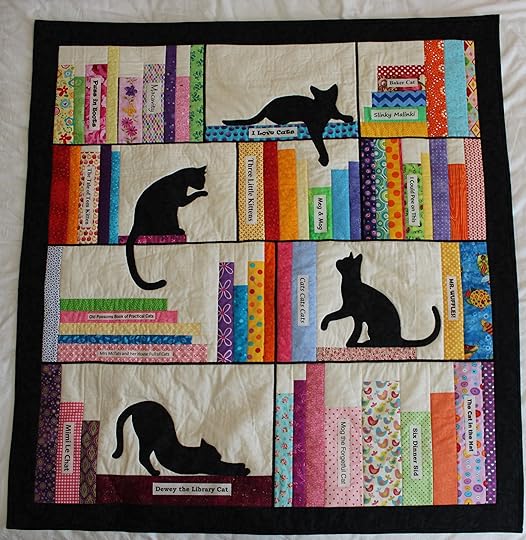
What has happened to the world? Seriously, where are all these discussions about public libraries being “obsolete” and “a waste of money” coming from?! Last week, I saw the link to an opinion piece in newspapers, the thought that “Amazon.com should start running libraries, because it would save the taxpayers a ton of coin.” And my brain just kind of exploded.
EXCUSE ME?! In what universe does this concept make any sense!?? Amazon is first and foremost a business, and it does not put profits above serving the community. No, it doesn’t. While there are businesses that effectively do both, most large corporations would happily throw things like employee satisfaction and “giving back” to the wind in favor of ye old almighty currency. Sad but true.
Libraries, on the other hand, were never intended to be moneymakers. Libraries were meant to be places where knowledge could be shared with the masses, whether rich or poor, native or immigrant, young or old. Turning a high profit is not the goal. And that’s okay, for the love of Pete.
Since we live in a culture that has increased literacy but not financial stability or easy access to all forms of technology across the social classes and geographic areas, libraries are more important now than they were 200 years ago, when a lot less people knew how to read.
In a world that’s rapidly changing some aspects of our lives, libraries remain one of the few public institutions that are working tooth and nail to keep up, and stay relevant.
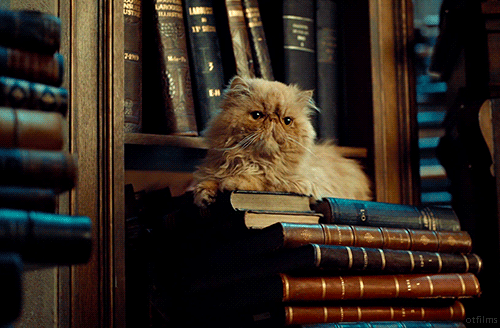
And, oh, my, yes, how relevant they are! Libraries still provide safe and free shelter to after-school and college students from the inner city, who need to do their homework without worrying about being in a violent and possibly unstable neighborhood. Libraries provide computer training to older adults who aren’t sure about using these “new-fangled” mechanisms. Libraries employ people in your community, and train young volunteers in marketable skills.
It’s not just about the appeal of lending free books to well-read individuals. It’s about helping families stretch their budgets further, and still getting to expose their kids to a wide variety of fiction, non-fiction, films and music. About encouraging communities to come together to discuss important themes of our day as we find them in literature and arts.
It’s about keeping kids off the streets. Sharing culture and history with citizens of all economic backgrounds. Passing down information from generation to generation.

Our ancestors took this stuff seriously. There’s a reason The Great Library of Alexandria was considered a nearly sacred building.
When the pursuit of knowledge must be tied into whether or not it makes money, this shows a distinct decline of decency in our society.
No, I am not being too dramatic.
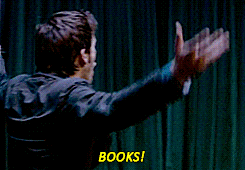
How can you help? If you’re an author, support your local (or the nearest) library — give them free copies of your own work to circulate, and regularly check items out of their system. Indie authors, especially — do this, and share your friends’ publications this way, too.
If you’re a reader, film enthusiast, or music fan — Before you dash to Amazon.com, Redbox, or Pandora, try the library for those new releases. If you have to put an exceptionally popular item on hold, so what? Learning a little patience is a good thing.
Before you consider attending a low-cost movie night or crafts class at a rec center or town hall, check out your regional library. As budgets have shrunk within many areas of the public sector for such things, libraries have sought grants and funding to increase their offerings.
For example, I live in a town with around 13,000 people — but this summer our library has daily free kids’ programs (including lunch), weekly events for teens (registration only, no cost), board games clubs and painting classes for senior citizens, and family storytimes at least once a week. They’re also handing out prizes all summer long to kids who meet their reading goals. (Muffin already has a coupon for free ice cream and a free restaurant meal.)
And write your Congressperson, your town or city council, smart rich people who know how important this cause is. Don’t give in, or give up.
Libraries MATTER. They are an integral part of civilized society. Without them, rather than advance into a utopian ideal, we would surely backslide towards the Dark Ages.
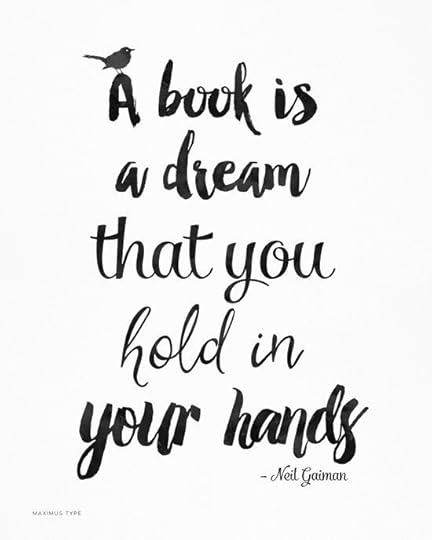
July 23, 2018
Common Misconceptions About Writers

Announcing you’re a professional writer garners an interesting mix of reactions from passerby or new acquaintances. Some people will be absolutely fascinated and assume you must live some kind of jetsetting life, involving month-long working vacations on the coast of Spain, meeting celebrities, and attending conventions during which your name will develop its own actual hashtag. Other folks simply squint at you and indicate they’re a bit concerned you should get a “real” job.
Why do people even think either of these extremes? Well, it comes down to some rather unrealistic conceptions about writers and the writing life. Today I’ll examine some I’ve run across, and hope to dispell them, but the true aim is to have fun. While informing the ignorant masses. Ahem. Fun first, right.
#1: Writers must be incredibly brilliant geniuses. You think this because we create worlds and get paid for it, probably. Well, yes, imagination is an important tool in the creative’s box. However, writing a novel start to finish is about 14% imagination, 123% hard work. (Yes, the math is fine, ssh.)
Oh, yeah, coming up with an idea that hasn’t already been done a gazillion and a half times is a major bonus towards eventual sales and reader base. But if you have a fantastic notion, and utterly boondoogle it on the page, then you are sunk.
After waking up at 1:30 in the morning and scribbling down on an old post office receipt the phrase, “The killer was underground, hoarding his victims’ socks,” you still must make sure plot holes don’t pop up, characters don’t do things without motivation readers can relate to, and that you don’t write in one paragraph, “Uncle Arthur’s big gray horse,” only to put in the next chapter, “Uncle Amos’ big white horse.”
You are responsible for getting the research from reputable sources, for connecting all the dots in your story’s arcs, for crafting dialogue out of your own mind and didn’t just lift from threads you saw on Twitter. And while all of this does require intelligence, smarts do not replace the effort.

#2: Writers all know each other and go to amazing writing retreats together. Ha. Ha, ha. Hahahahahahahahaha. Yes, some of the bestselling authors are friends, and sometimes get the chance to dash off to a cabin in Scotland for a week to work on their WIPs in one another’s company. But this is so extremely rare. (Ask people like Neil Gaiman and Maggie Stiefvater themselves.) (And, yes, I am an authority on the lives of these folks — I follow their Tweets.)
Besides the fact that no one really has the money for this type of thing (even New York Times bestsellers), we don’t have the time (so many professional authors have families and other ways they spend their free hours), or necessarily the inclination. Writing is largely a solitary pursuit — partly because of all the research and the thinking and deciding that must happen. If you’ve ever tried to figure out the best way to off a character while your kids are wrestling in the next room, and all you can hear is, “He’s licking me! He’s licking me!”, then you understand why quiet and being alone is vital to creating a good story.
Indie authors do tend to have more personal connections — a lot of it is because our platform is smaller, more tight-knit, and we rely on each other for occupational support, marketing help, and bouncing editing or design issues off one another. (Since we don’t have an army of copyeditors and proofreaders and artists and billboards at our disposal. Of course, many traditionally published authors don’t have an army, either, merely a team. Well, this is our team.)
#3: Writing a new book must be so easy for the seasoned author. Are you kidding me?! Does anybody realize just how long fans have been waiting for George R.R. Martin to finally release the next Game of Thrones book?! I once read the fantasy novel Hounds of the Morrigan by Pat O’Shea, and it took her 13 years to complete it. Go ask anyone who’s published, and they’ll have at least one tale to regale you with, showing you that even the 5th or 8th or 11th title can be damn hard.

#4: Writers always insert some of themselves into their main character. This is an interesting one, because it’s not automatically false by default of being on this list. In fact, it can be very true — depending on the situation we’re writing about, and whether we’re drawing on personal experiences for a particular arc or plot point or characterization.
For example, when I write about Avery and Madison — the autists in The Order of the Twelve Tribes — of course I’m bringing in certain things from my own existence and perspective. But there’s also a lot I flub — since I don’t live in the fey realm, like Avery, nor am I still 15, like Madison. I wasn’t homeschooled (as they both were), nor am I an orphan (Avery is). So while there are parts of these characters that are definitely close to my personal experiences, there’s just as much that isn’t, at all.
#5: Writers get to spend all day in front of their computer, churning out amazing sentences. Uh, no. Just, nope. Many indie authors have a day job, and write when they can, like on weekends or in the evenings. Others of us may not work outside the home, but there’s still plenty in the home to keep us away from our WIP — children, chores, errands, appointments, pets. The idea that we literally have nothing else to do for 8 hours Monday through Friday besides tap on that keyboard is downright laughable.
And most of these sentences are not amazing the first — second, umpteenth — time around. The final product that you read after buying or borrowing our book has been slaved over, for a copious amount of months. When the sentence in the printed book reads, “Tilting her eyes towards the indigo sky, she drank in the millions of pinpricks of silver,” it’s pretty much a guarantee that in the draft, it read, “She looked up at the stars.”

#6: All of our characters are based on real people. Wellll….yes, and no. There are elements of my sons, my relatives, former neighbors, that make their way into my work, affirmative. Do I actually steal concrete conversations word for word, or map a character’s traits directly after someone I know? No! And while it’s certainly correct that we draw inspiration from real life, the fact is that most of us fictionalize the heck out of so much.
#7: Writers are naturally introverts. Not necessarily. Yes, we tend to pursue our occupation on our own, but that doesn’t mean we never leave the house or speak to another living human. Some of us are very outgoing, enjoy meeting fans, have lots of friends, and are often late to the retirement party or family reunion because they were trying to finish that chapter. It comes down to personality and individual tastes.
#8: All authors must be super rich.
… … …
If by “rich” you mean we have a bunch of $4 pens from Staples, then, yes, we’re drowning in wealth.
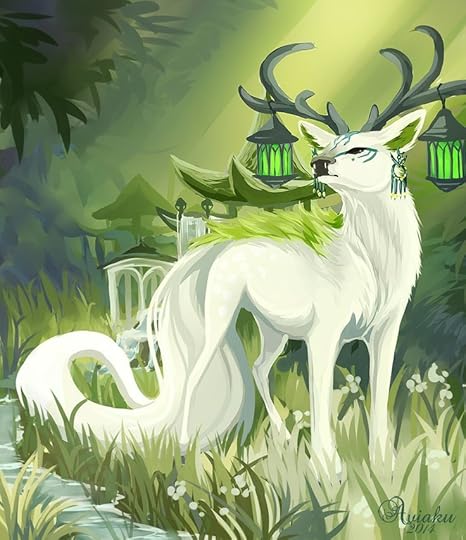
#9: They’re probably pretty full of themselves, because of all their genius and talent and fancy vacation homes in Paris. Okay, unfortunately, yes, some of us are stuck-up pillocks. Don’t judge a book by its cover, though (intentional pun, I swear). Most of us are normal people; our passion and calling happens to be in this field, but we don’t have inflated egos so big they stop us getting through the door of a Walmart. Many of us can be approached on social media, or even in person, and we don’t bite, I promise.
#10: I have no idea. Between it being Monday and Muffin being home with sniffles, and a bunch of new things just getting added to my to-do list, 9 is all I can come up with, folks.
What do you think, fellow authors? Any misconceptions to add?

July 17, 2018
Where English Class Has Failed Us

Good afternoon, everyone! This is a topic that I’ve noticed taking center stage in recent discussions, on why people of a certain age seem not to know particular things that previous generations had little trouble with. It’s also a subject that I find important to keep in mind, as a writer, and a reader. So, after collecting my thoughts, I’m here to compose a post.
And because we all need our daily dose of cute…you’re welcome.
Problem #1: People don’t understand what literary analysis is or how to use it properly when reading a book. This includes everything from not grasping how metaphor and allegory properly work, to not knowing what unreliable narrators and crossover genres are (or that these things even exist).
Goodreads is littered with reviews that simply state, “This book is so great, read it!” or “I didn’t like this book at all, it was crap.” You have to be able to explain WHY you did or didn’t like something. A reader’s final opinion of a title is frequently based not on content or premise, but largely on whether they meshed with the author’s style, the execution of the plot, and how they related to the characters.
For example, I think the premise and plot of The Book Thief is so intriguing, and important to the conversation we must keep having about World War II. However, I really struggled to finish the book — because the way it was written I found very off-putting. Having Death as essentially an unreliable narrator, because he couldn’t empathize with so much of what Liesel and Rudy were going through, or truly get inside their heads (as opposed to having a more deep POV), created several points where the story just dragged for me. And there were many times when I was confused as to whether Death was simply musing, or if the author was describing something that had definitely happened to the characters.
But, do I think The Book Thief was bad? No, I actually don’t — I’d still recommend it to others. It just wasn’t for me — and I can concretely identify why.
This is a skill that will serve educated people well throughout their lives — not just when you have to write that term paper for high school English class.

Problem #2: No one knows proper punctuation, or thinks to learn spelling themselves. Spell check will take care of that, right? WRONG. Spell check only offers suggestions — it is still up to us to find a dictionary (physical copy or online), and know how to sound out words, and check the definition, so that we’re confident this is the word we’re after.
How can we even contemplate becoming a professional writer if we don’t truly know the difference between your and you’re, or there-their-they’re? How do we even start something like a blog without having proper control of these linguistic elements? How in the world will our resumes and business proposals and last will seem to others if we can’t write and speak well? If we want people to take us seriously, indicating that we care whether we appear to have taken English lessons from a tamed wolf on the edge of our backyard should be a concern.
Problem #3: Lots of people don’t comprehend the meaning of the genres. They get that fiction is not about something that definitely happened; they get that non-fiction is real events, places, and people. They know a book is not a magazine. They know books marketed to children use more pictures and shorter words and are easier for young minds to follow. This is, sadly, in a lot of ways, it.
Historical fiction is fiction written about a particular time period after that time period has passed. A novel written about 1849 in 1854 is contemporary fiction — yes, it truly is. Classics are books that have been beloved by readers for a long stretch of consistent years, and are considered by the literary world to set the standard for a genre. For example, The Hitchhiker’s Guide to the Galaxy and Lord of the Rings are classics in sci-fi and fantasy. So they aren’t Jane Eyre or Huckleberry Finn, it doesn’t matter.
Fantasy and dystopia are NOT the same thing. Sci-fi and steampunk are not the same. (And, yes, steampunk is totally a genre.)

Problem #4: Just because someone wrote it doesn’t make it true. The Da Vinci Code stands out to me as an obvious point of discussion on this. Whenever there’s a novel that takes a lot of history, a little speculation, and a dash of conspiracy theory and mixes it all together, this still does not mean the “solving” of the mystery is what actually happened. It’s still up to us to do our own research, and find out how much artistic liberty was taken, before we start decrying something as damaging or harmful. Anyone who claimed Harry Potter was teaching kids witchcraft, for example, could’ve spent 5 minutes looking into the vast differences between neopagan worship and traditional legendary wizarding and realized this wasn’t the case.
The other point on this part that really irks me is when readers claim authors “shouldn’t take artistic liberty.” Tough. It’s our creative right, and quite frankly, not our fault if people can’t figure out to do their homework.

Problem #5: The quality of “literature” being published has distinctly gone downhill. In the past few years, I think I’ve found a major issue with 90% of the new releases I’ve read. Either there are pages and pages of meaningless, wandering descriptions and conversations that do nothing to advance the plot, or the characters don’t speak like real people, or the plot itself is rather unbelievable. And honestly, it feels that the standards for what could become new classics are really slipping.
I’m all for having plenty of fiction that’s more fun than anything else; not every single printed title has to be the next To Kill a Mockingbird or Oliver Twist. But when frustration and confusion reigns higher than enjoyment after reading, this is a big deal.

So, thanks for letting me whine for a while! What are your thoughts on all of this? Are you a writer or a reader who’s come across some of the same kerfuffles? Any notions on how we should go about trying to protect the literacy of the next generation??

July 10, 2018
A Perfect Autistic Vacation

I’m not much of one for traditional vacations. Apart from the fact I can’t even afford a haircut right now, typical summer holiday spots can be rather intimidating to this moth. It’s the crowds, the noise, the not being familiar with where you’re going, or what the place will be like when you get there.
Oh, I can survive all this, and I have, on many occasions. But now that I’m older, and definitely not as willing to brave the unknown as previous times in my life, I can say, with a fair amount of certainty, that I have some pretty firm requirements for my future vacations.
Ideally, it will be someplace I’ve been to before. This doesn’t limit me for choices, in fact, since I’ve been to several states, and England as well. And there are many areas I’d like to go back to, for the second or even third or fourth time.
I’m going with someone I know. This is how I get around the tricky things like trying to attend Realm Makers (because no matter how ready I convince myself I am, a boatload of anxiety would result). It really doesn’t matter that I haven’t met in person anyone I know from blogging or social media who also goes to this event; the fact that I would recognize them, and they me, and that I’m at least somewhat familiar with them, and vice versa, would be enough to get me on the plane and to the hotel.
Indoor locations are prime. Outside things scare me more. (Camping is totally a no.) So anything held at a hotel — especially with air conditioning — or that involves a lot of time spent inside buildings (minus unpredictable insects and weather) will be much more attractive.

As long as it isn’t too extended, I can handle going by plane or train. I would actually prefer this to a long car ride (anything over 2 hours one way starts to grate on my nerves). I can deal with turbulence on a transatlantic flight, or a train ride up to around half a day. This means that I don’t have to restrict my destination to somewhere within 50 miles of my house.
It needs to be a place I can seek out some peace and quiet. Amusement parks, concerts, and sporting matches are waaaaay out of my comfort zone. All that yelling and strange people jumping around, and speakers turned up to 11. And I can’t do rollercoasters (I’ve never been on one in my entire life, and that will most likely never change).
Museums and art galleries, historical sites, the ballet or theatre (where people are expected to keep their lips zipped during the action) all sound a fantastic getaway to me.
I get to stay on dry land. I love the sound and smell of the ocean. I love watching those David Attenborough programs about the sea and marine wildlife. I love doing all that from the safety of my own home, or at the very least no closer to the water than 6 inches away. I can stand on the beach and watch the waves roll in and out for quite a while. Then I’ll go swimming in the heated pool in the hotel.
Look, do you guys realize just how many scary creatures there are in the oceans? And some lakes and rivers, for that matter? I’ll never go to Disneyworld or Universal Studios Orlando because I am petrified of swamps and alligators and giant snakes. You shalt not catch me anywhere near the Everglades. I’ll go to California, because there I can safely tour Harry Potter land far, far away from the sharks in the Pacific.

There have to be a variety of dining options. I’m not as sensitive an eater as many on the spectrum, but I still need to have plenty of choices. I need to be able to gain access to restaurants that won’t automatically put condiments on my sandwich or salad, will offer non-spicy foods, vegetarian alternatives (when I’m feeling stressed, sometimes a tofu or mushroom dish really hits the spot), and won’t give me a hard time about any of this.
I can’t have unfamiliar roommates. So sorry to anyone who’d ever like to volunteer to share a room with me at, say, Realm Makers; but if I do this, I will become a puddle of utter sadness and desperation. At the end of the day, I have to get control of the noise level in my space, the TV (and the remote), the phone, and who else I’m around (i.e., no one after a long stretch of extroverting).
(When my family’s driving me crazy, I sometimes indulge lush fantasies of checking into a local hotel all by myself. True story.)
The natives have to be English speakers. I’m aware this really reduces my chances of ever going to Europe (and I would secretly loooove to go to Paris and Prague), but I just don’t have a wide enough slot for managing jet lag and language barriers.
(Maybe I can one day sell enough books to hire a translator to come with me??)

My last guideline is actually the least problematic — I prefer cooler places. That means California in January, not June; Cape Cod in September (it’s still beautiful in the off-season); Australia and New Zealand in fact have winter during summer for us, so if I went there now, I probably wouldn’t sweat to death. And England only gets really hot for about two weeks a year, and the rain truly doesn’t bother me, so I’d be golden on that at any time on the calendar.
And there we have it! Maybe next summer I’ll pitch a tent in my own backyard and fill up the air mattress, and when we’re stargazing I’ll pretend we’re actually afloat on a replica pirate ship off the coast of Barbados?
(Or maybe I’ll get super lucky and Realm Makers will be held about an hour from my house.)

July 7, 2018
The Speculative Fiction Conundrum

So, here we are, almost to Realm Makers! (I’ll let you scream as much as you want, by the way, if you’re nowhere near ready.) It’s a big deal, because this is one of the few Christian writers’ conferences that focuses on speculative fiction (that simply means sci-fi, fantasy, retellings, dystopia, alternate histories — all the stuff we can’t know for sure or may be impossible in our world). Although I won’t be there in person, my books will be there (recent drama happened related to that, so cue my own screaming). But I really hope to make it to the conference physically at some point, since I have yet to have the opportunity of attending a writing conference that takes Christian worldviews and the “impossible” stuff and combines them, without batting an eye.
I’m proud to be a spec fic writer; honestly, I don’t see it conflicting with my worldview in the real universe at all, and it actually really rankles me when other people claim the opposite. There are, unfortunately, problems with writing spec fic that go beyond the religious discussions. It can affect many aspects of your author life.
For example, I’ve had a couple of people say they “didn’t get” my work, but they simply never read fantasy (and therefore, I truly wouldn’t have recommended my titles to them). While there’s no hard and fast rule that fantasy can only be read by people who have previously read it, there simply are folks who will never pick up a fantasy genre book in their lives. And while that may hurt your feelings as an author, for the most part, it’s genuinely nothing personal. It’s all about individual taste.
Spec fic has yet to be seen as mainstream, though. No matter the number of superhero and aliens-from-outerspace movies topping the box office, how many TV shows are produced involving time travel and AI and the zombie apocalypse, regardless of the fact that names like Neil Gaiman and Terry Pratchett, Holly Black and Cassandra Clare are consistently on the bestseller lists, we’re still considered a “fringe” element of entertainment and the arts.
And tossing aside what I said about not taking it to heart, sometimes that’s tough. When it comes up in conversation that you’re an author, and people ask what you write, and you say, “Fantasy!” and they get this glazed look in their eyes. When you purposefully wait until a certain librarian is on duty to request particular titles, because you really don’t want to have to spell out every single word to the poor frazzled person at the check-out desk. (Yes, this is absolutely my life.) When you can’t watch the season premiere of a favorite show because the rest of your family is watching the playoffs for whatever sport.

So many of us don’t hold a grudge against the stuff we’re not into; we’re just bored by it, and we’d rather spend our free time analyzing what intelligent life on another planet may look like, how we’d get out of the labyrinth, or learn to cook Middle-Earth style. We don’t say to people, “Oh, my god, don’t waste your time with soccer/antiques/gardening!” Why, then, do we get such rolling-eyes, derisive-snorting, under-the-breath-laughing responses when we admit what our interests are?
It’s why lots of us are willing to travel hundreds of miles to attend a conference with tons of other people we’ve never met, just to be around folks who feel like friends within minutes, when you can simply walk up to somebody else and compliment their Star Trek shirt, and you spend the next 2 hours having coffee with them.
As a spec fic artist of any sort, you can sometimes feel isolated from the rest of your community. Thank God for Twitter, because I found a whole bunch of Christian geeks, before I even knew such a thing existed! And since my local library hired a staff member who watches/reads most of the stuff I do, I truly feel like my immediate social circle is widening. And though there are plenty of very valid reasons I won’t be able to go to Realm Makers, I do still wish I could — because I would, for once, feel at ease extroverting.
Occasionally, we can’t even win with the “mainstream” spec fic folks — the ones that feel faith and spiritual practices are ridiculous. Not that this covers all of them, not by a long shot. But indeed, the blending of Christian beliefs and fantasy or sci-fi or dystopia is a relatively new thing. Too many well-meaning people of the Church felt it was necessary to do away with superstitions and folklore throughout the centuries, until the idea of otherworldly creatures and dimensions and physics were reduced to Disney films. (This perspective also told agnostic/non-believing SF people that there was no room for God in their art, which has been just as damaging.)

I take issue with so much of this, and I know I’m not alone. So, yes, we can all band together, and hopefully work through our own differences about religion and politics (the unmentionable subjects), and maybe, one day, the entire spec fic community will be on the same page (yes, pun intended).
Especially since Christian SF authors and artists have a lot of valuable stuff to contribute. We can encourage people to think about God, about society, about laws, morals and traditions in a very different way to those who write/draw/act/produce media minus a faith/spiritual-based foundation. We should be invited to the table, to openly debate philosophy and ideology, science and legend. Nor should we receive backlash from churchgoers for including magic and myths and fairytales in our works that also search for God and Heaven.
And we should be promoted just as much as non-SF artists. We shouldn’t get relegated to the back of the metaphorical room simply because of what we write or read or watch. We should have the chance to reach just as many people as our mainstream counterparts.

I’m facing this quandary right now as I attempt to fix/work more on How To Be A Savage. It’s a completely contemporary piece (one of my very few), and there are days when I know I just can’t. I have to write about unicorns and mermaids and poohkas that afternoon.
It’s important for me to write HTBAS in a “real world” vein, since it’s addressing serious topics in the real world, and I want to make an impact on these things that I feel are necessary to hash out, for the sake of our children and future generations. Sometimes we can’t run off to a distant galaxy to do this (as much as we’d like to, myself included).
And I already know (without running a poll or anything) that this Own Voices novel will interest more people than my fantasy series. There are folks who won’t hesitate to pick up HTBAS, and have never heard of The Order of the Twelve Tribes. And all of this is hard for me not to take personally.
Yet, my goal for Savage is to educate people about autism, on a broader scale than my autistic characters in Volumes 1-5. There are different standards, different expectations — of my own making.
As I said, the conundrum.

June 29, 2018
Healers and Warriors: Now On Sale!
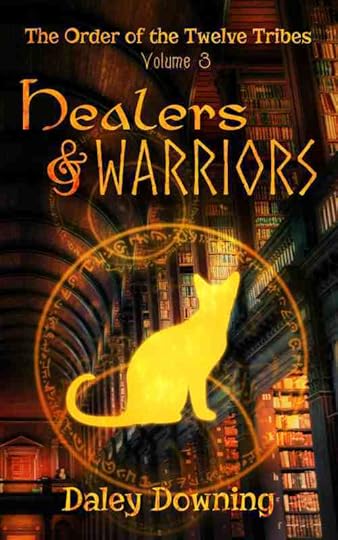
So, a little something happened…
This release is in fact occurring a day or so earlier than I’d hoped for, so I’m excited, too!
If you go to Goodreads and search for “Healers and Warriors Daley Downing,” you should be able to find it and add Volume 3 (and Volume 1 and 2, and the short story collection) to your TBR. (The Barnes & Noble link works on the H&W page, too, by the way.)
*Shameless self-plugging disclosure. I just released my 4th book, I get to do this today*
For those of you attending Realm Makers this year, there will be a limited number of autographed copies of Volume 3 available. Along with a few autographed copies of Masters and Beginners and Rulers and Mages! So if you have yet to start reading the series, this could be the perfect way to get going!
*Okay, edging off the awkward sales pitch*
A massive thank you again to those of you whose faith and support in this series has never wavered. Writing and publishing each title is a wondrous and weary undertaking, so your ongoing encouragement and enthusiasm has always provided me a strong pillar to collapse on when it all feels a bit too much, and one to cheer from when we achieve another success.
June 25, 2018
News on How To Be A Savage and Volume 3 (Plus an Abundance of Cute Rabbits and One Wombat)

Good afternoon! (Where did the morning go?!) It is SOOOO Monday, regardless of it being summer… Anyway, the last couple of nights, sleep has not always been my friend, so I’m a little out of it. BUT, there are developments, new items, and impending interesting stuff to reveal to you. Hence, I go forth, to blog, in what is hopefully a coherent manner…

One: Volume 3 of The Order of the Twelve Tribes, “Healers and Warriors” is near to its official release! Whether its online debut will happen prior to mid-July is yet to be determined, but I do know that its in-person unveiling will occur at Realm Makers this year! In fact, a few special autographed copies of each book I’ve published so far in the series shall be available at the conference (for those of you going), watched over by The Kyle Robert Shultz. If you aren’t attending RM, don’t worry, Volumes 1, 2, and 3 shall always be available on Barnes & Noble.com.
Two: After experiencing a great deal of brain-ache and technological sorrow with Wattpad, I’ve decided not to worry about uploading new sections of “How To Be A Savage” on the website for now. To those of you who happily checked out what I did post, thank you so much for your support and your feedback. I simply do not have the energy or the patience to devote to a website that doesn’t feel very user-friendly to this user.

Three: I am changing my already-altered-once plan regarding HTBAS. Once I decided to include the non-fiction parts, and started on the research, and tried to apply this to my writing, without sounding like a textbook… I CANNOT DO IT, MATE. My mind hurts. I feel like I regurgiated all the most unpleasant aspects of my life and added Latin medical terms. SEND. HELP. Preferably in the form of fluffy cats and red velvet cake.
So, I am back to fictionalizing everything. But it will still be a rather raw and brutally honest account in many ways. Most likely I shall dissolve into a puddle of melted moth before it’s over. Reason # 23 I am completing writing this particular project and publishing it prior to the end of 2018. I’d like to survive to achieve the rest of my authorly goals.

Four: High among these goals are the Super Secret Project (in collaboration with White Fang). It’s a spinoff from The Order of the Twelve Tribes (check for hints in Volume 3!), a standalone, and features a character that White Fang helped create. Look for that to hit Barnes & Noble.com later this year!
Five: To be published about the same time — my prequel to The Order of the Twelve Tribes. For the moment, I’m calling this Project Tangerine. More details forthcoming!

Six: If I get all of this done without perishing… In early 2019, I will absolutely release Volume 4, and then… There will be a Volume 5. This is a decision that was made within the last couple of months. Several tangents popped up in my head that I really wanted to explore more in the “canon” series, and I just can-not-do-it-all in 4 installments. So, although I have just increased Kyle’s workload, luckily his excitement at the existence of a 5th book is overcoming needing to create additional covers.

Seven: If the world is extra kind to me and I make it through all of that, I may go for a concept that’s been ticking away in the back of my way-too-busy brain for a while — a collection of “lost tales,” short stories or novellas that were inspired by subplots I either cut out of something or wanted to delve into further but didn’t get around to yet. Let’s call that Project Mango.

And finally… If you need some quick summer reading, don’t forget to check out my short story collection! Entitled “Dreamings and Muses,” it can be found on Barnes & Noble.com, and features a really lovely cover by the talented Alea Harper!
All right, back to your regular scheduled programming! Hope you’re all having wonderful weather and getting to sleep in!

Daley Downing's Blog
- Daley Downing's profile
- 36 followers



